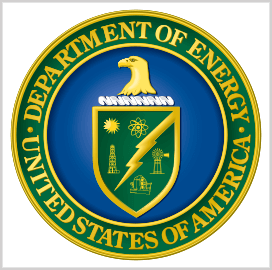The Department of Energy has begun seeking proposals from industry sources capable of providing deconversion services needed to establish a domestic fuel supply for advanced reactors.
Selected vendors will deconvert high-assay low-enriched uranium, or HALEU, as uranium hexafluoride gas to various chemical forms during a 10-year performance period under the HALEU Deconversion Services contract, DOE said Tuesday.
Each awardee will receive a minimum guarantee of $2 million and conduct deconversion and storage services at locations within the continental U.S.
Interested parties have until Jan. 30 to respond to the request for proposals.
A second RFP is scheduled for release later this year to acquire, store and transport HALEU to the deconverters.





